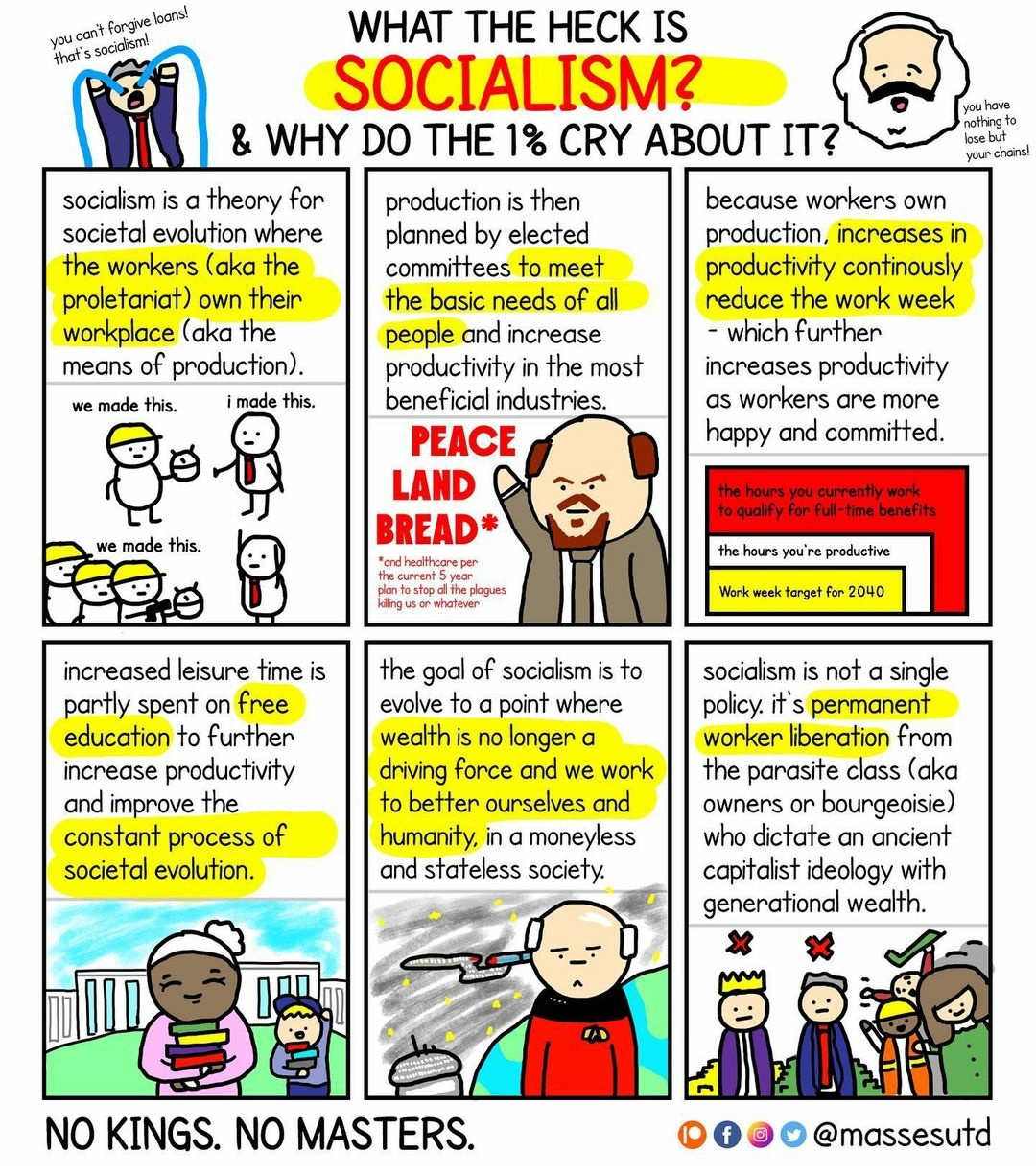So it's all nice in theory, but I have questions...
the workers own their workplace
Based on previous discussions, I understand the commonly proposed model here would be a workers' collective of some sort. People involved in the collective's production share the proceeds - we made N number of tractors and took them to market and received X value units; we spent Y value units in the production process, so we can distribute (X - Y) value units among the members of the collective. The workers own the equipment and infrastructure used by the collective and share responsibility for production. If a worker moves from workplace A to workplace B for whatever reason, they cease to share in the proceeds and responsibility of workplace A's collective and take on the responsibilities of workplace B's collective and share in its proceeds.
(Aside: What if X is smaller than Y? Should members then add back the difference for the next production cycle, so production materials can be procured?)
Let's look at the (X - Y) part a bit more closely. This defines the benefit that members of the collective derive from the enterprise, so they are collectively incentivised to make the difference as big as possible - to benefit themselves rather than a capital owner. Let's assume that all collectives can procure production materials equally with no supply and demand market forces (unlikely). Let's further assume that the market value for the goods produced is fixed (questionable, but OK). So anyone involved in producing tractors pay the same number of value units for raw materials and components and can only ever sell tractors for the same number of value units as everyone else. This means that an individual collective is heavily incentivised to reduce the raw materials needed per tractor (production efficiency), make better tractors than other collectives (market attractiveness), or increase the number of tractors they take to market in a given time period (increased production). Each collective, and ultimately its members, thus stand to benefit from having the most skilled tractor builders, innovative tractor designers, and an all-round hardworking membership. A more successful collective would draw more workers with such beneficial traits and become even more successful in the process. It would also be in the interest of the collective to either push out members that do not contribute according to their full ability, or reduce their share of the proceeds. The former would result in some workers not being accepted into any collective after a while and thus not contributing to any production, the latter in performance-based remuneration that creates societal inequality.
Congratulations! You just created market forces in the labour market that will have winners and losers.
a.k.a the means of production
Can someone explain to me what this means in today's world, beyond factories making physical goods (such as tractors) using physical machines and manual human labour?
production is then planned by elected committees
There are some details missing here. Who elects these committees - workers, or society in general? What are the requirements for being electable for such a role? How are these committees held accountable for failures? Do they plan production at a society-wide level, each in a specific industry, or down to regions or specific production facilities? Do they serve only a planning role, or are they also responsible for execution?
What checks would be in place to prevent professional popularity contest participants (those we call politicians at the moment) from adopting a facade of ideological purity and getting elected on popularity rather than merit? How would they be insulated from outside influence by those affected by their decision making? Do we really need more tractors, or do they still have friends in Worker's Collective 631 that makes tractors?
Congratulations! You just created a managerial class (at best) or just the usual corrupt cabal that run things to their own benefit.
increases productivity as workers are more happy and committed
That's a big assumption. Anyone have any data from wide sampling across multiple industries to support this as a long-term sustained effect?
work to better ourselves and humanity
If you replace "humanity" with "our close community" this might be realistic. I don't think the "and humanity" has ever happened at a macro level.
